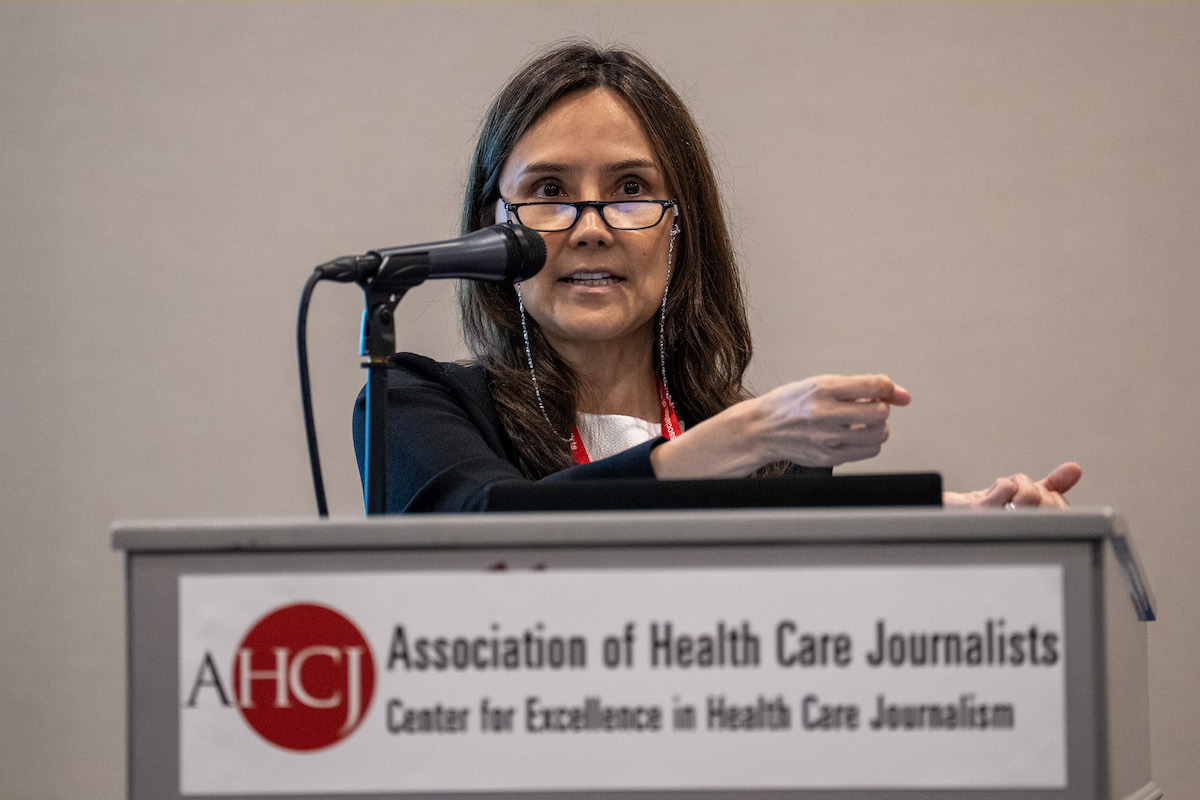Panelist Genevieve Kanter, Ph.D., speaks at HJ25. Photo by Zachary Linhares
Finding true efficiencies in the U.S. health care system
By Emily Woodruff/AHCJ American Cities Fellow
At HJ25, health care leaders and experts tackled one of the industry’s biggest questions: Why does the United States spend so much on health care, yet see comparatively poor results?
“Waste, fraud, and abuse” have become rallying cries in Washington, especially as policymakers consider potential Medicaid cuts and reductions to federal health programs. However, panelists said that this catchphrase oversimplifies deep-rooted inefficiencies in the $4 trillion health care system.
SCAN Group CEO Sachin Jain, M.D., MBA, pointed to a “leadership crisis” at the heart of the problem, describing an industry more focused on financial performance than on improving health.
“We’ve taken the moral compass out of the industry, and I think that’s at the heart of our failure to actually move forward,” Jain said.
He added that health care organizations often aim to grow and generate more revenue, rather than prioritize patient outcomes. As a result, the system profits when people are sick and using more services.
Genevieve Kanter, Ph.D., a public policy professor at USC, highlighted the system’s design — where health care is managed by multiple insurers and government programs — as a major contributor to waste. She said administrative complexity, such as different rules and payment models, leads to extra costs that don’t help patients.
“This is not going to be easy to just become efficient,” Kanter said, adding that even efforts to reduce waste will only go so far unless the larger system changes.
Lanhee Chen, PhD., who served in senior roles in the U.S. Department of Health and Human Services during the George W. Bush administration and has advised politicians such as Mitt Romney and Marco Rubio, said that many policymakers lack the expertise to tackle health care’s complex issues.
“There’s a fatigue around health care,” said Chen, the David and Diane Steffy Fellow, Hoover Institution at Stanford University. “If you talk to a lot of members of Congress, or even senior players in the administration, they’ll tell you, ‘I just want this off my plate. I don’t want to deal with it.’”
Panelists also offered guidance for journalists covering health care, encouraging them to look beyond surface-level stories. They recommended investigating whether hospitals have fulfilled their promises following mergers and examining how brokers are paid to enroll seniors in Medicare Advantage plans.
Panelists agreed that while politicians focus on rooting out waste, the real challenge is changing the system’s incentives — which currently reward providing more care rather than keeping people healthy. Until those incentives shift, they warned, high spending and poor results will persist.
Emily Woodruff is a health reporter at The Times-Picayune in New Orleans.
